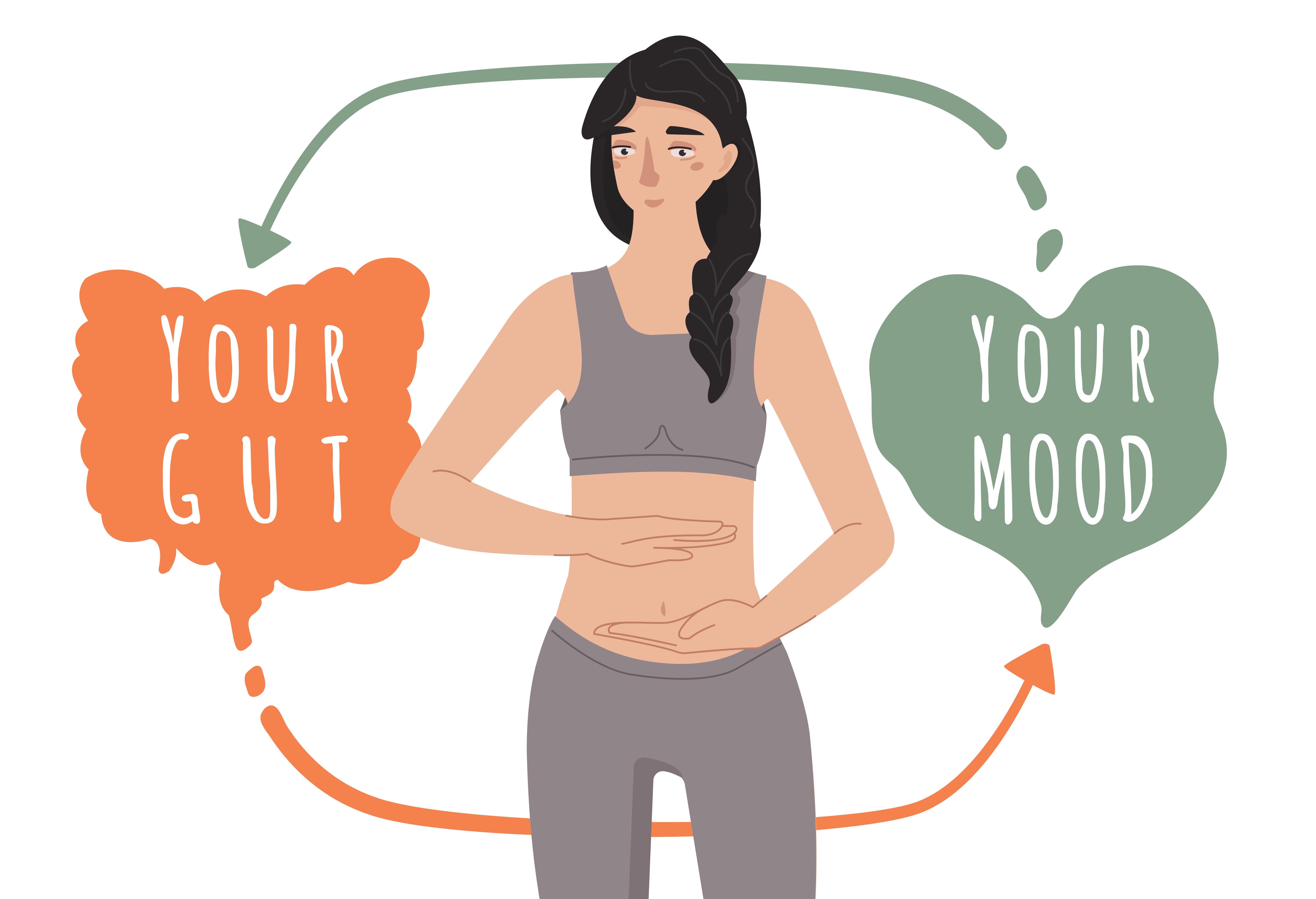Is your gut happy? This often depends on what your brain is thinking, feeling, and deciding through the many pathways and signals it is sending to your gut. We call this the gut-brain connection. To help you understand the connection, let’s start with some statistics that may have some relation:
- 11% of the world’s population has IBS (irritable bowel syndrome). This means that 896 million people suffer from reversible gut issues.
- 11-15% of people suffer from depression.
I recently listened to an interview with Dr. Vincent Pedre, who specializes in digestive health. There is evidence that what you put into your body and what you expose your body to has an impact on your brain and emotions. Gut issues can present in a number of unconventional ways such as joint pain, fatigue, brain fog, or skin rashes. You may have difficulty losing weight or building muscle, despite eating well and exercising.
So, what’s new within the last 100 years that has changed our gut and its microbiome?
- Antibiotics affect your gut flora by increasing or decreasing permeability and shifting the microbiome.
- Individual diets include more processed foods (vs. whole foods) which affect the ability of our gut flora to recover from imbalance or damage.
- Lifestyle factors (stress, exercise) and environmental toxins (pesticides) cause varying degrees of inflammation.
- Oversanitation (using too many antibacterial soaps, cleaners, sanitizers) can cause an abundance of substances to be absorbed into the body and alter the gut microbiome.
Dr. Pedre talks about a study done in the Netherlands of over 1000 people. The study found 13 different bacteria in the gut that created imbalances. These bacteria produced too much of a compound (TMAO), which was related to a higher risk for depression.
So how does stress impact the gut-brain connection? Not all stress is bad. Your health is affected when the accumulation of different stressors pushes your body beyond its limits. There are two mindsets when it comes to stress and the gut-brain connection. Which one describes your life?
- You have mentally adapted to stress and a busy lifestyle, which you classify as normal. You don’t notice that your body is having a biophysical response (inconsistent sleep, sugar cravings, difficulty focusing, needing to do things to “take the edge off”).
- You experienced a major event or trauma (death of a loved one, divorce, significant financial or job loss, etc). You were so busy getting through the experience that you didn’t actually stop to acknowledge the grief or unresolved emotions that resulted from the event.
Our gut and brain are resilient and have the ability to heal. Dr. Pedre recommends making changes through stepwise activations instead of trying everything at once. First, make a list of changes you want to make and choose the first thing you can activate (go for a walk, take processed food out of your diet, join a community, etc). Master that one thing to develop a single habit, then build upon that habit. It’s not going to feel good and you’re not going to be motivated initially. Push past this and create the energy you need to keep going until you’re able to envision yourself feeling good.
Give yourself personalized care. What works for you may not work for your Mom or your best friend. Feed yourself more plants, which creates microbiome diversity and new neuronal connections. You may think eating salads is a great place to start but if you have severe gut dysfunction, start with cooked vegetables first. Do this for 14 days, assess how you feel, then add a raw or fermented food. Read your body and recognize what your body is asking for before you eat, while you eat, and after you eat. When you are feeling inflamed, stick to simple foods like broth.
If you’re interested in reading more about your gut, brain, or both – check out these studies:
- Regular consumption of fermented vegetables have positive effects in mitigating Covid-19 severity.
- An alternative to the Mediterranean diet: What we can learn from the gut microbiome of the Hadza of Tanzania.
Many of my friends and family say, I wish I had time to _____. I can’t tell you how many people I have met (as an oncology nurse and personally) who worked really hard to achieve a financial or social goal, to only then be diagnosed with a chronic illness that keeps them from enjoying life fully. You have the ability to enjoy life at any age if you start taking charge of your health now.
In fact, let’s do it together. Contact us for more information on gut health!

